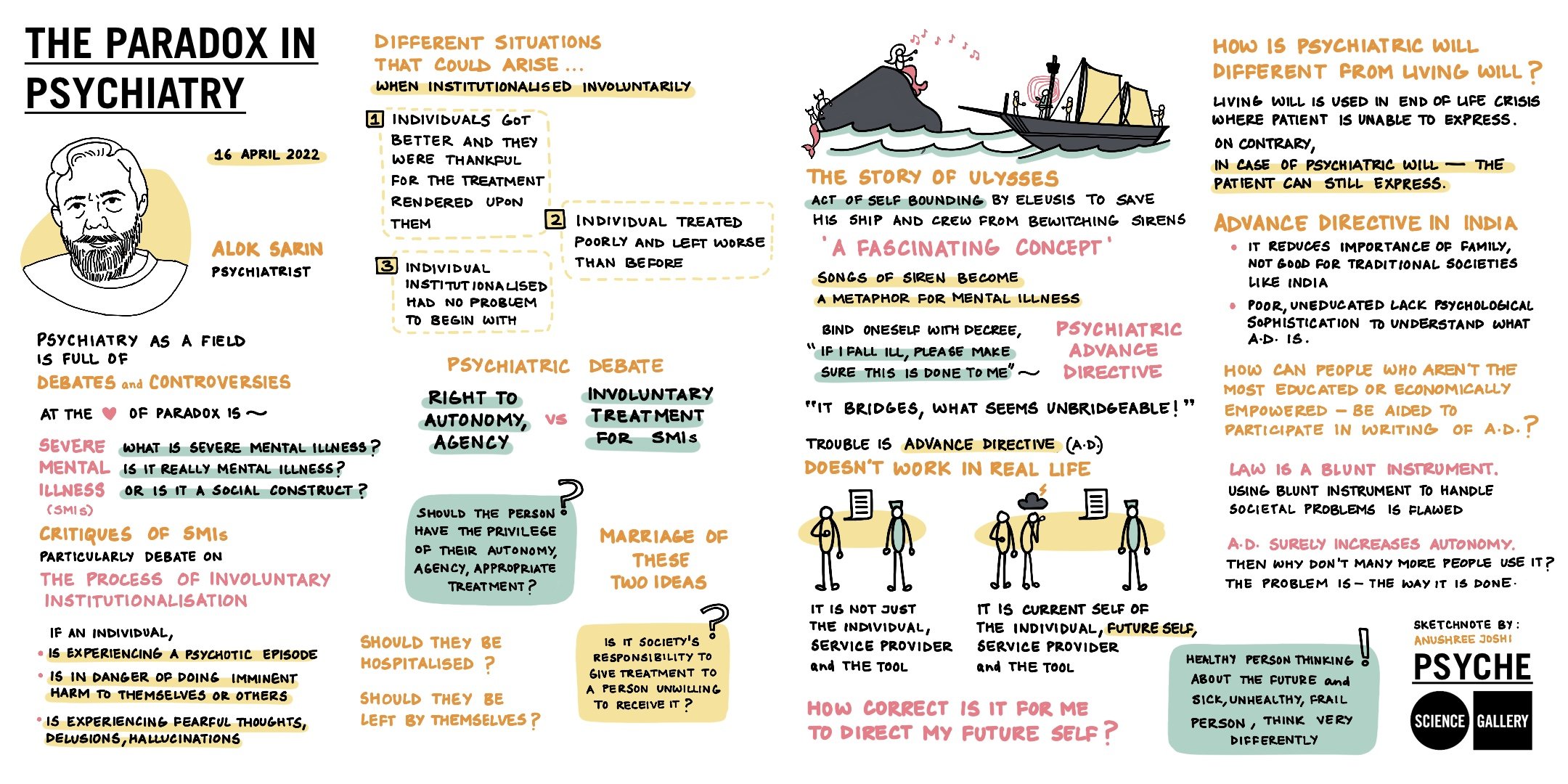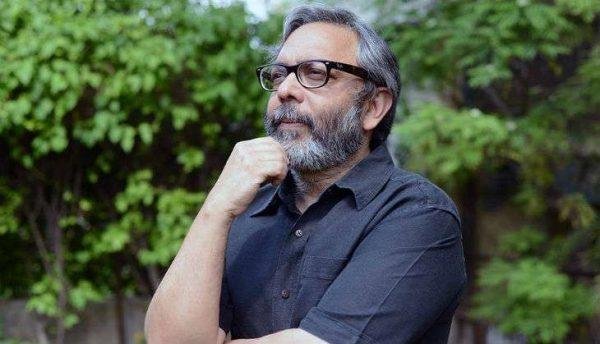The Paradox in Psychiatry
The concept of the ‘advance directive’ in psychiatric discourse presents a somewhat counter-narrative to the traditional discussions in the field. The psychiatric advance directive is a ‘living will’— a declaration by a person of how they would like to be treated in the event of experiencing a mental illness.
On the face of it, this clearly sounds like a good thing, as—influenced by advance directives in end of life situations—it empowers decision making and autonomy. The contradictions arise because end of life situations prevent the person from expressing decisions, while in cases of mental illness, the decisions may be expressed, but can differ from the expressed directive. This has led to the formulation of a fascinating idea, that of the ‘Ulysses clause’, which says that like with Ulysses, I would like you to hear what I am saying today, and not what I may say when I am unwell.
Unpacking the obvious contradictions in this position, Alok Sarin’s talk explored these threads of the advance directive. The talk also explored other paradoxes in psychiatry, with discussions about where we locate the mental hospital in the histories of mental illness, and where we see healing happening, whether with medical intervention or with therapy, or with self-awareness, and how we might address these multiple binaries.
About the Psychiatrist
Alok Sarin, is a practicing clinical psychiatrist in New Delhi, with a strong interest in medicine, psychiatry, ethics, society, history, and literature. He has been in active clinical practice since 1985, and is currently attached as an honorary consultant to the Sitaram Bhartia Institute, New Delhi.
He has received the Senior Fellowship by the Nehru Memorial Museum and Library, for research on the mental health aspects of history. He is the conceptualiser of the Canvas Askew—a public forum for addressing mental health and illness issues.





